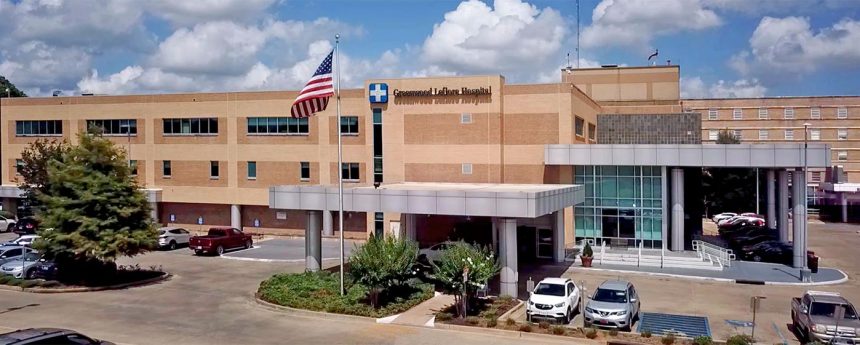As Mississippi continues to face an ongoing hospital crisis, lawmakers in the Senate have passed legislation to remedy some of the issues faced in the Delta.
With many healthcare facilities in the area facing financial turmoil and running the risk of imminent closure, Senate Bill 2713, colloquially known as the Mississippi Rural Regional Health Authority Act, was approved by the Senate in a 32-17 vote. The legislation creates a regional authority to manage the operations of participating community hospitals and would allow medical facilities under that umbrella to collaborate, share resources, and draw down an estimated $40 million in Medicaid funding.
Public, private, and nonprofit healthcare providers would be able to partner up under the supervision of the Delta Regional Health Authority, created by the bill, to maximize the efficiency of resource usage by the facilities to promote better patient outcomes in the region.
“This bill is all about the money. These hospitals are struggling to stay open. These hospitals disproportionately are on the verge of collapse,” bill author Sen. David Parker, R-Olive Branch said. “This will allow these hospitals, should they choose to do so, to collaborate together to try to deliver healthcare in a more effective way and in a way that can benefit the people in these areas.”
The Delta Regional Health Authority would begin with an organizational board consisting of three members appointed by Governor Tate Reeves and two appointed by Lt. Gov. Delbert Hoseman with the consent of the Senate. Three of the members would be required to be residents of the Delta while all five must be qualified Mississippi residents who reflect the racial and ethnic demographics of the region.
The members of the organizational board of the authority would be responsible for the formation, organization, and implementation of the regional health authority and would be tasked to serve in that capacity until one or more community hospitals have agreed to join the authority.
Once multiple hospitals have joined the group, the organizational board would be converted into an operational board. As many as six additional members would be permitted to be brought in to serve on the board. The new members would be appointed per participation agreements with the hospitals. The authority would also be authorized to hire a CEO. Future members of the board of the Delta Regional Health Authority would be appointed as provided in the participation agreements.
Participating healthcare providers would not be subjugated to community laws, but would be governed by the authority. The authority would have the capability to advise some hospitals to prioritize certain categories of care and another to emphasize a different specialty to maximize the number of patients the limited supply of physicians in the region can treat.
On the federal subsidies front, the Mississippi Division of Medicaid would be directed to implement a supplemental payment program to support operations conducted by the Delta Regional Health Authority, which would be the source of the estimated multi-million dollar drawdown. The state would have to pay an estimated $10 million for the hospitals to rake in $40 million in Medicaid funding.
Though the legislation was given the green light by a majority of the chamber, it notably did not receive any votes from Democrats and was blasted by a couple of lawmakers representing portions of the Delta.
Sen. Derrick Simmons, D-Greenville, accused Parker who does not represent the Delta, of having the legislation set in motion far before consulting the lawmakers whose constituents would be directly impacted by the bill’s text.
“When I look at the bill, here it is again. Someone knows what’s best for the Mississippi Delta without consulting the senators in the Mississippi Delta,” Simmons said. “When there is an opportunity to assess or help the Mississippi Delta, do the Delta legislators want you to do that? Absolutely. We just want the courtesy to be part of the actual proposed policy because we live there. We represent people there, and more than anybody else in this chamber, we can tell you what’s best for the Mississippi Delta.”
Further, Sen. David Jordan, D-Greenwood, though glad to receive any kind of funding for hospitals in his region, argues that Medicaid expansion is a more proper solution than what is currently being offered.
“When it comes to the Mississippi Delta, we cannot get on a board to help us. That’s not right. It’s not right. We are Mississippians too,” Jordan said. “We need our hospitals. We have people dying in mounting numbers and yet we can’t get anybody to work with us unless it’s what you want, not what we want. $45 million is good, but it’s not enough.”
Parker maintained that his motive for the legislation was solely to improve a region that has received national attention as a healthcare desert and is in dire need of solutions for arguably the sickest population in the state.
“I realize that the Delta is a part of the state and I hope, that by passage of this bill, we can do some things to improve the area,” Parker said. “If you think my intentions on this are less than sincere, you are sorely mistaken.”
The bill heads to the House of Representatives for consideration.








